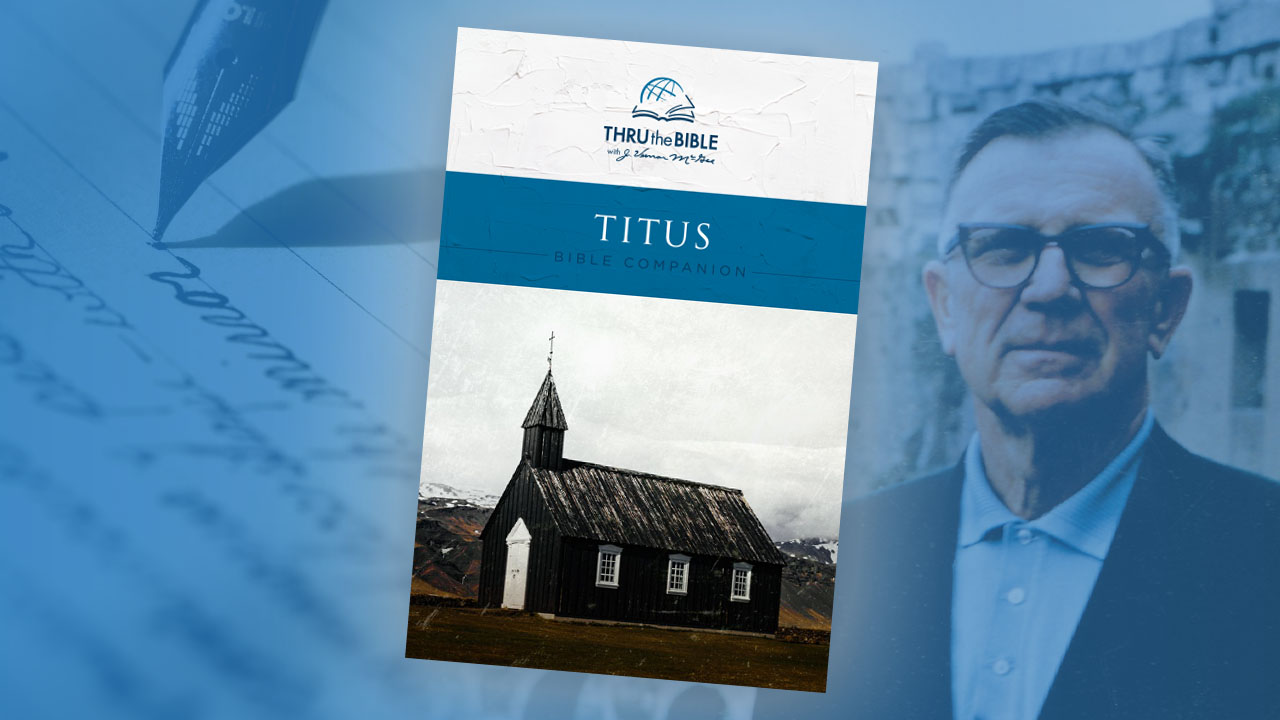Thru the Bible—Titus & PhilemonSample

Living Out the Love

Before you start todays devotional, ask the Lord to use it to grow you up in grace and in the knowledge of our Lord and Savior Jesus Christ.

When is a local church all that God intends us to be?
We’ve learned so far that a church should be organized by God’s priorities and teach trustworthy doctrine. Now we’ll see that we should represent God to the world by genuinely acting like His children.
That begins by obeying the laws of the land where we live. This obedience is not to the individual in office but to the office they represent.
Our churches then should teach and model how to “be ready for every good work” (v.1), eager to do good works to a watching, needy world.
In addition to doing good, we must also refrain from negative behavior. “Don’t speak evil about anyone. Don’t quarrel. Instead, be gentle and courteous toward everyone.”
To keep our pride in check, we should remember how we acted before we came to the Lord—sometimes foolish, stubborn, disobedient, deceived, and slaves to sin. Sadly, some of this old behavior leaks into the church, too. We may boast about how sound we are in the faith but may be riddled with envy, gossip, and hateful attitudes. This disgraces the cause of Christ and should never be how His redeemed people who have been shown such grace act.
“… But according to His mercy He saved us” (v. 5). Because Jesus died for us and paid the penalty for our sins, God is now ready to extend mercy to us. He is rich in mercy, which means He has plenty of it.
When God stepped in, He gave us a good bath. We came out of it as new people, washed inside and out by the Holy Spirit. The water represents the Word of God—the Bible will wash you with sanctifying, cleansing power. The Lord Jesus poured out our new life generously. Have you noticed that in everything God does, there is a surplus? And there’s more life to come—an eternity of life!
But for now, we are to reflect this hope by living for others and doing good works that help them. This isn’t to earn our salvation but rather a result of our salvation. Until we’re saved, God isn’t interested in our “good works” because what we call a good work, God calls dirty laundry. He doesn't want any of that. He wants to save you. He isn’t asking you to do something for Him—what could you do for God? He has done something for you.
After you are His child, then He wants to talk to you about doing good works. He wants you to get involved in getting out the Word of God to others and producing works for God that are good for everyone. It’s easy to get sidetracked by people who want to argue or debate with you about your faith. Stay away from all that.
One more challenge about good works: It's something we learn by doing. First, understand what God considers good works, then learn how to do them so they bring the kind of fruit that pleases God.
Paul ends this practical letter to Titus with a special hello to all his friends in the faith and hopes they experience the grace of God in their lives. What a great blessing we share!
This short letter to Titus connects what we believe about God with how we live before others. We follow it because we love God and want others to know how wonderful He is.

1.How can you discern the difference between speaking evil of someone and calling other believers to account for their sins?
2. Why must we learn to do good works? Do they not come naturally?
3. How can you discern the difference between speaking evil of someone and calling other believers to account for their sins?
Additional Resources
Listen to Dr. J. Vernon McGee’s complete teachings on Titus 3.
For a deeper study of Titus, download the Titus Bible Companion for free!

Scripture
About this Plan

What you believe about God affects everything you do. Titus focuses on sound doctrine and how to live it out in our lives and communities. Then discover the truth behind the story of the slave, Philemon. In this study covering two short but powerful books, Dr. McGee connects what we believe about God with how we live and helps us see that God’s love empowers us to forgive.
More
We would like to thank Thru the Bible for providing this plan. For more information, please visit: http://ttb.org
Related Plans

Biblical Secrets to a Healthy Marriage

Fruit of the Spirit Christmas Plan

Servant Leadership

Days of Prayer to Discover Your Identity in God

I'm Saved, Now What?

Raising Money-Wise Kids: A Parent's Guide to Biblical Money Values

Under Construction: Lessons From a Pumpkin Patch

Realignment: Three Days With God

3 Steps to Being a KINGDOM BUILDER in Your Life Today - Part 2
